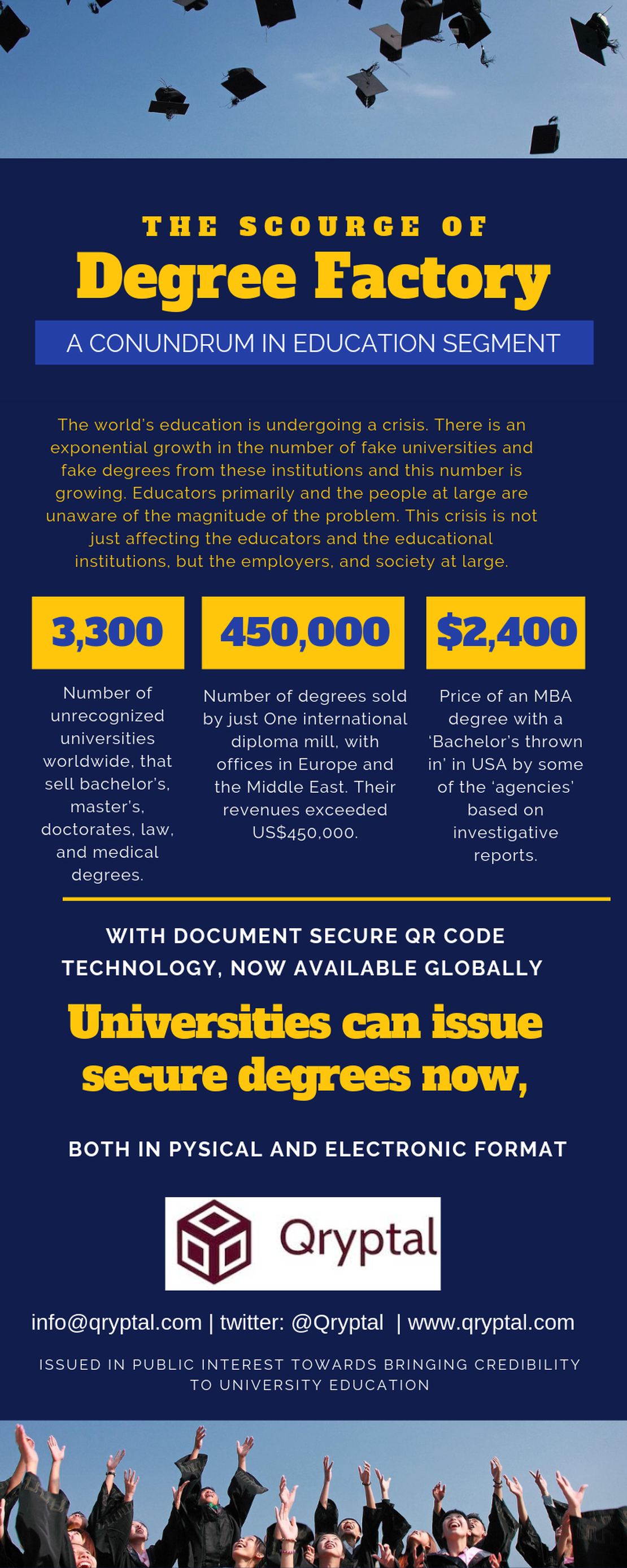How a fake engineer fooled Lakeland Electric...
- Rajesh Soundararajan
- Nov 26, 2019
- 3 min read
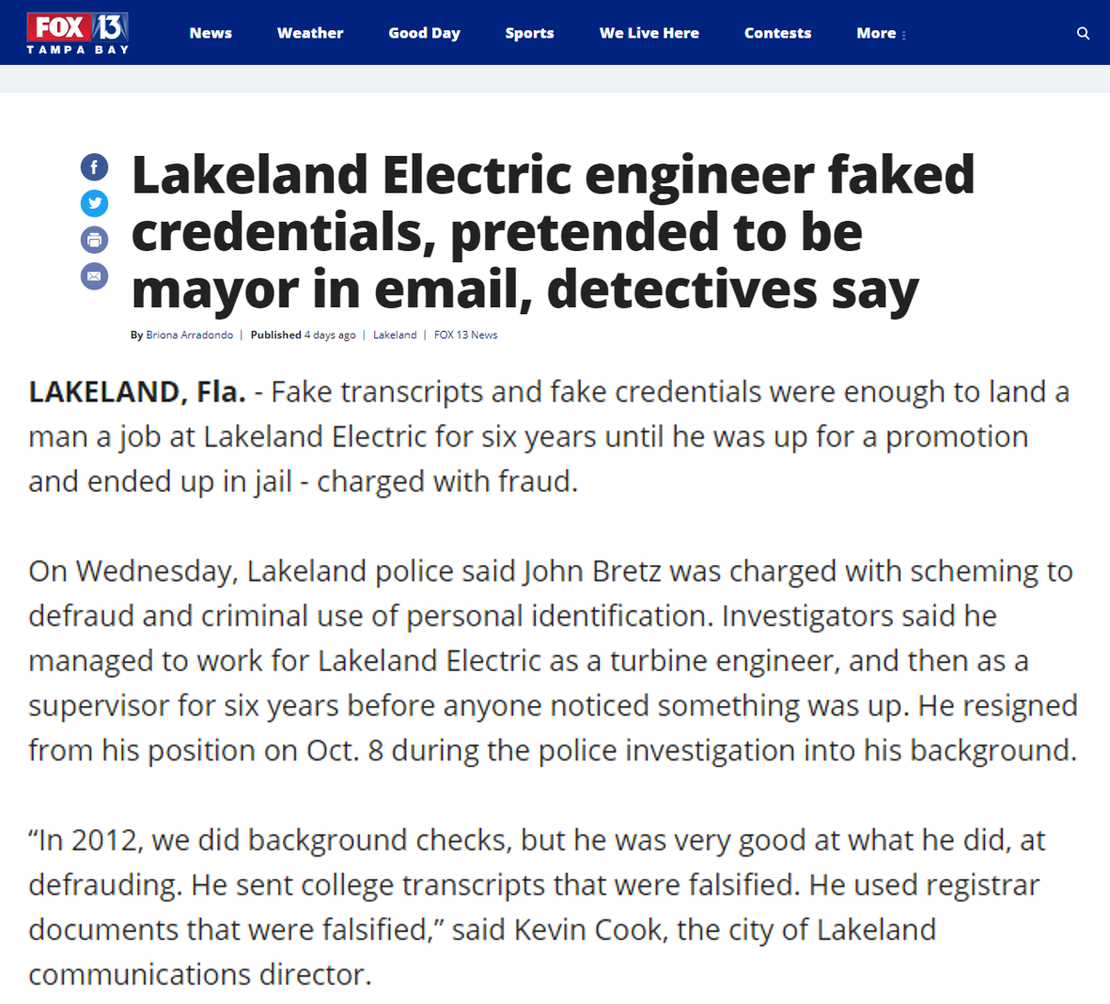
..with forged education credentials and how this could have been easily avoided
When a turbine engineer, John Bretz, at Lakeland Electric company was due for a promotion after 6 years at the company, something bizarre happened. The company realized that Mr. Bretz had faked credentials including submitting fake transcripts when he joined the company years ago.
He was a supervisor for six years before anyone noticed something was up. Imagine a rogue engineer and without qualifications at a supervisory position, responsible for electric supply to the city! A single error due to lack of qualifications for a technically proficient job would have put the entire population at risk.
In 2012, when the company conducted background checks, they did not find anything untoward because he was very good at what he did - at defrauding. Lakeland Electric received college transcripts (that were falsified) and registrar documents (that were also falsified). By 2018 however, when the engineer was due for promotion, the company had started using a third-party vendor to do background checks, and at that point in time Lakeland Electric found out that the “original” documents supplied in 2012 were actually forged
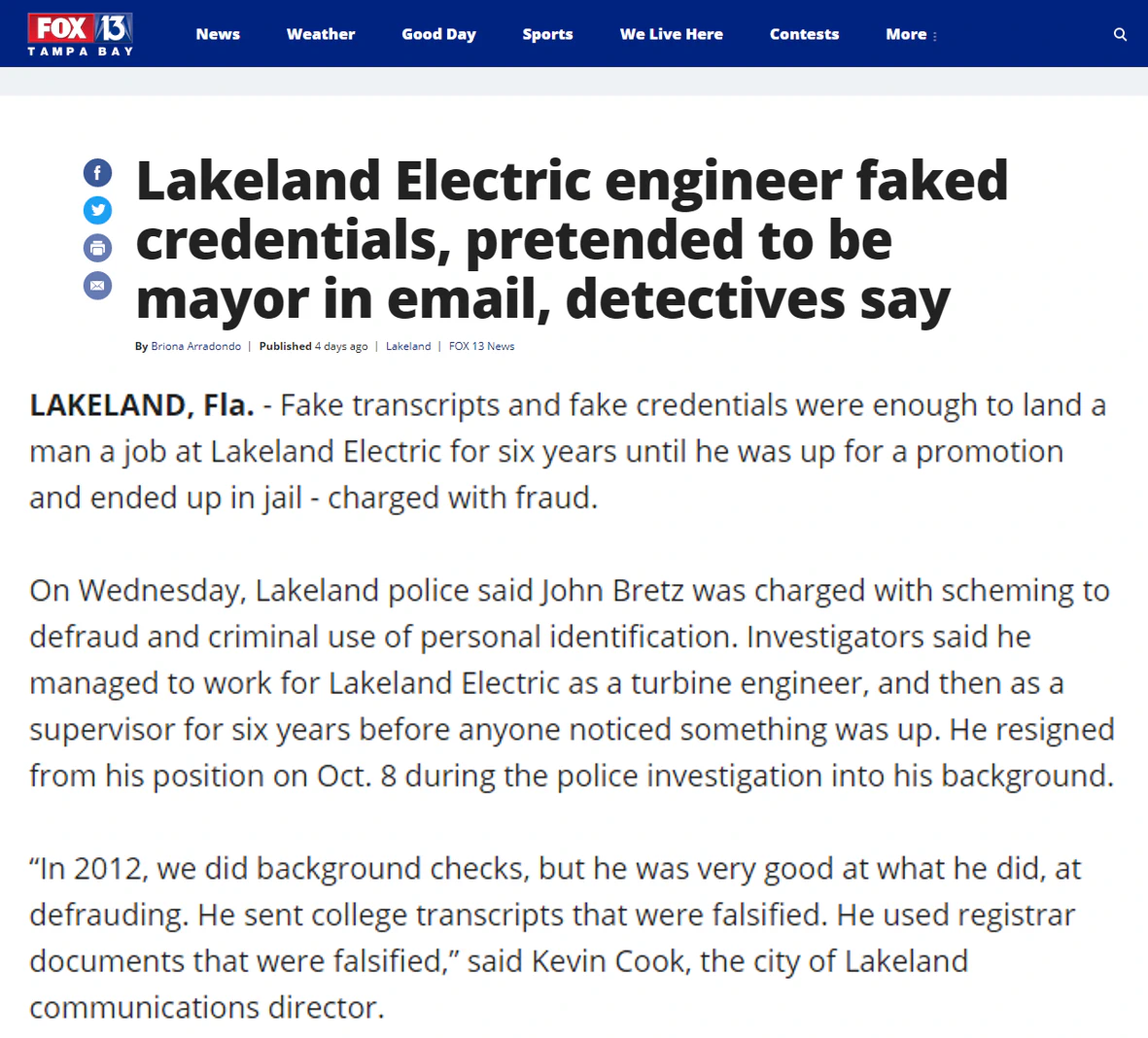
Why do these things happen?
With technology improving rapidly and becoming seamlessly available to both institutions and fraudsters alike, it has become very easy to create forged documents using almost the same technology that is applied for the original documents.
Universities are thus plagued with problems of fake degrees and certificates with no easy answers. The entire system of verification of documents is complex. The usual methods for verification of educational credentials like clearinghouses, third-party verification services or a direct approach have become both expensive and time-consuming.
While some universities attempt to include physical security features like holograms, RFID tags, etc these fall short for reasons like ease of verification, non-applicability for electronic versions and a short shelf-life, apart from cost.
How can you fix these?
Let us suggest to you, something that is unbelievably simple, affordable and fool-proof. A quiet revolution is happening in the world of secure QR codes. Think of this as ubiquitous QR code on steroids. Secure QR code looks similar to regular QR code but has military-grade security embedded that helps make tamper-proof documents at the point of creation. This can be subsequently verified for authenticity across the world by third parties, offline or online.
This is how it works
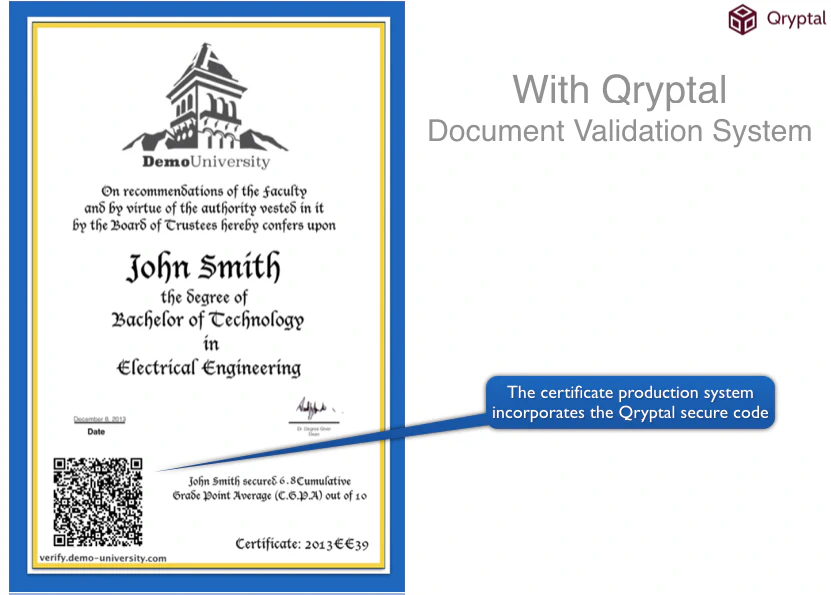
Secure Degree Certificate
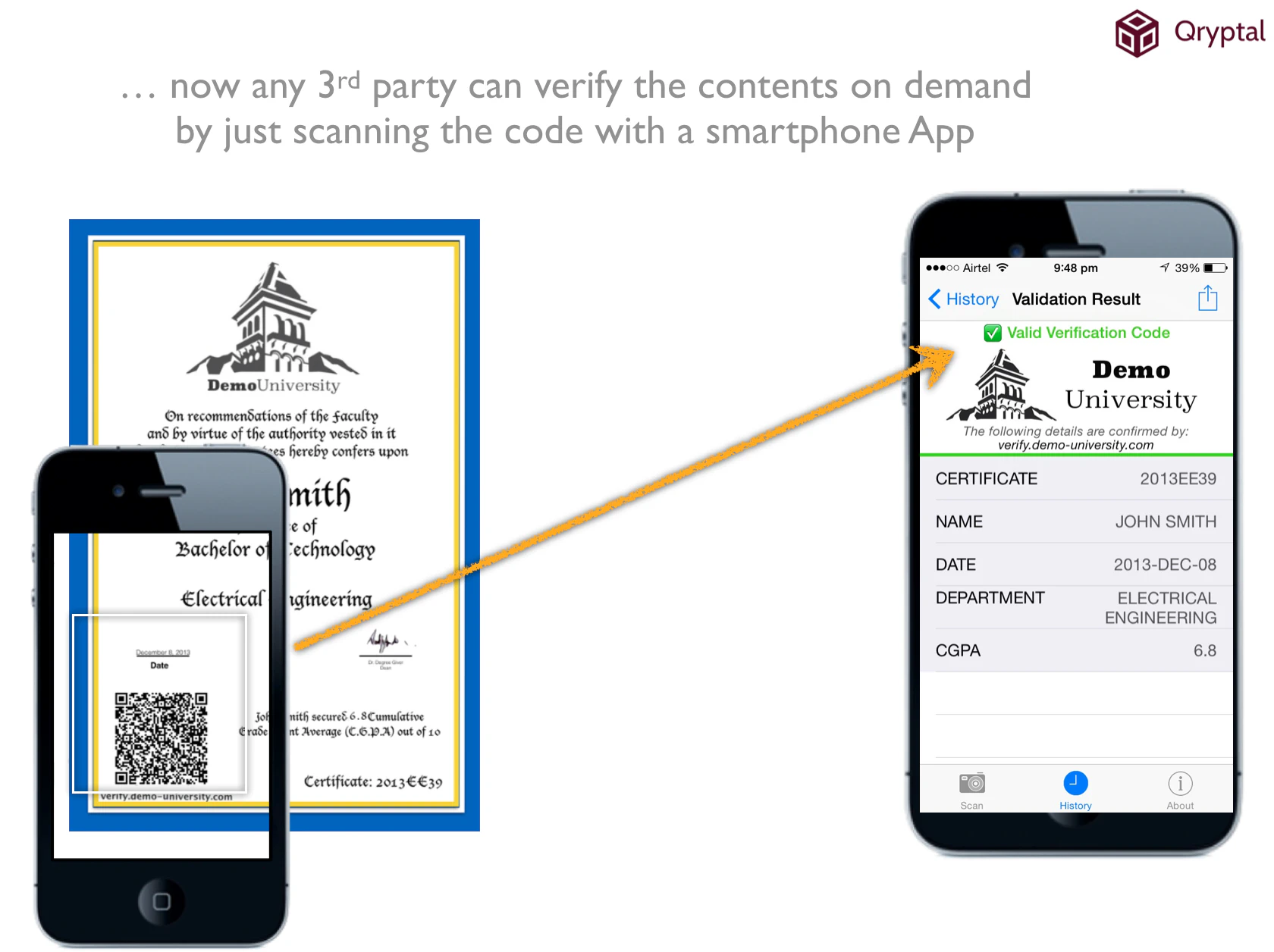
Scan QR Code to Verify
Qryptal Secure QR Code solutions address this issue because of the following benefits
1. Seamless Security
2. Works for both Digital and Physical Certificates
3. Tamper Proof
4. Easy Generation
5. No database dependency
6. Full privacy
7. Affordable Integration
8. Ease of Verification
For more details please write to us at: info@qryptal.com
You may also like
Why is India’s Modi Government’s HRD ministry worried about a huge fake degree crisis?
Secure QR Code technology now enables Universities to issue degrees that can be verified globally
5 steps that you can take to ensure tamper-proof mark sheets!

